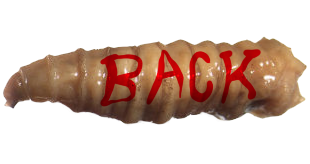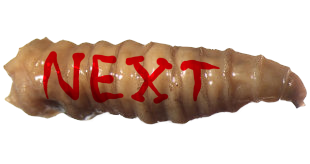
MAD SCIENTISTS AS MONSTERS

I hope you all had a nice Halloween! And if you didn't, don't worry, because it's STILL Halloween and will continue to be Halloween until 2019! Our horror story contest is now underway, Nightmare Beings are coming soon and we've got plenty of other fun stuff to talk about, but for our first post-Halloween-post, I thought I'd continue the Halloween Bestiary to revisit another favorite!
"Mad Scientists" have long been recognized as a kind of horror
character...but should they qualify as a
monster? Personally, I think the answer is yes, yes they absolutely should,
under the right conditions.

While it's true that many Maniacal Academics are ordinary, mortal human beings with a few eccentricities, they do seem to be possessed of knowledge that ought to be impossible. Granted, any new and radical enough invention might qualify as "mad science" at some point, but when you're at the point of bringing corpses back to life or accidentally switching heads with an insect, I think we can make a case that there might be something more going on than just a very smart person with very peculiar ideas.

Popular culture is, of course, already brimming with mad scientists who definitely qualify as mutant creatures of some kind, nearly always exhibiting significantly larger brains than any normal person is supposed to have - sometimes so big that they
can't even keep them contained in their skulls, or in some cases, they discard their original bodies entirely.
There are many ways we've seen these beings come into existence - when explained at all - and it varies from simply being born that way to some kind of laboratory accident. One day they're like anybody else, or maybe a
tad smarter than average, and the next they've not only got an ungainly amount of grey matter but a whole lot of radical new thoughts that don't really mesh well with a lot of other people's social boundaries, as if they've got
too much brainpower to maintain their grip on logic, reason or any kind of moral compass.

Obviously, there are some unfortunate implications going on here; society likely has a habit of casting these characters as monstrous villains or at least
humorously misguided because society tends to fear radical thinkers, new ideas and intellectualism in general. You rarely see super-scientists as heroes anymore, and politicians these days
lose support if they come across as "too smart." These are all pretty lousy attitudes to have, and it's kind of sad that you can see their culmination in the trope of the Bonkers Professor, but monsters and characters embodying common fears and prejudices are nothing new; even Bela Lugosi's Dracula played on xenophobic paranoia, and we only see him differently today because we've gotten so accustomed to him as a goofy and improbable fantasy creature.

Similarly, while the original reasoning behind the Mad Scientist says some regrettable things about our civilization, it's long become nothing but a fun and kitschy character archetype to play with, and however villainous their role, it's hard not to instantly love them. The more over-the-top, the better.
So back to these clowns as a "monster" category - just WHAT are they? There's an old myth that we "only use 10% of our brains," and while we do in fact use
100% of our brains, its inner workings certainly continue to surprise us, and the idea that our brains might conceal some sort of secret, unlockable higher function, a sort of hidden Turbo Mode, is just far too cool a plot device.

Personally, I like to think of a mad scientist as a type of "acquirable monster status," like a werewolf or a vampire, that can befall just about anybody. Perhaps the change is triggered by some rare response to radiation exposure, an experimental new drug or even when the subject cracks some otherworldly mathematical formula, but whatever the catalyst, the subject's brain develops a certain set of neural pathways that sort of "unshackle" its true cognitive potential, and it's
not necessarily a good thing.
Maybe you think of yourself AS your brain and certainly not a
slave to it, but that squishy thing is already up to much more than you know, and a great deal of your behavior throughout the day is driven by decisions your brain has made without your conscious consent. This is more true than ever of the "Mad Scientist," whose brain is practically a monster in its own right, always craving more knowledge, craving more intellectual stimulation, driving its vessel to delve ever deeper into scientific concepts our feeble minds - perhaps even our very world - was never meant to safely contain. Soon enough, that brain may even become capable of telekinesis, receive information from other realities or even shed all use of a physical body at all, at which point the Mad Scientist trope evolves into the Brain Creature trope...and probably needs to eat
other people's brains to keep itself going.














